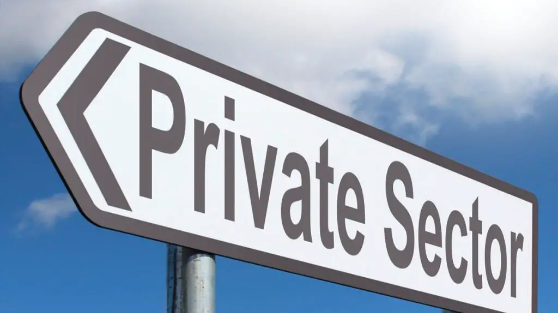 |
This is a strong factor that has affected the economic growth of the entire private sector in Vietnam post-pandemic.
In a talk with Saigon Investment, Mr. Nguyen Tien Lap, a lawyer and member of NHQuang and Associates Law Office, and an Arbitrator of the Vietnam International Arbitration Center (VIAC), commented that the private sector is facing a tough crisis currently.
Journalist: - Sir, what do you think about the current picture of the private sector in general and private enterprises in particular in Vietnam?
Mr. Nguyen Tien Lap: - From an institutional perspective, I think that the private sector is still fundamentally unstable and quite precarious and vulnerable. The reason is that although development has been fully exploited, the foundation is still unclear and uncertain. There are concerns about the right of ownership and property rights. For instance, when discussing amendments to the Land Law, I raised the question that the most important assets created by man are attached to the land. So, when separating land ownership and house ownership, which ownership rights are decided and prioritized for implementation need to be considered. This is a very basic problem. And from here are formed these businesses that are being favored.
- Sir, in your opinion, what consequences will favoritism have on the overall development of the private sector?
- Economic history shows that no substantive development can come from this. That is to say, it takes a long time for an SME to grow and form a large and super-large enterprise. If the number of large enterprises is small and they grow and develop naturally, there will be no problem. But growing up too quickly in a short time will be due to a combination of enterprise capacity plus external push, which the world refers to as crony capitalism. This is economically and politically unhealthy, and even a source of instability. Because every power game is partisan and competitive, it has the effect of distorting market relations based on free competition.
Talking about the negative and dangerous consequences of favoritism in businesses, in economic terms it creates inequality and unfairness in competition between enterprises because favored enterprises enjoy preferential treatment in terms of commercial rights and policies over other ordinary enterprises. In terms of state management, the status of favored enterprises distorts the process of policymaking and legal implementation.
In the political field, it contributes to the formation of factions with black power and uncontrollable underground power in the public apparatus itself, thereby creating conflicts and infighting. From a legal perspective, favored businesses are fertile ground for the development of organized crime, not only from the bottom up but also from the top down. As a consequence, law enforcement and protection agencies will be paralyzed from the inside.
Generally speaking, if ordinary corrupt practices only degrade a part of official morale, crony capitalism, when widespread, will degrade or distort the development of the whole economy, even the country. There has been a warning that the scariest danger of the market economy in Vietnam is not the domination of SOE over private enterprises, but the development of the private economy based on ‘yard’ enterprises. Because if weak SOEs can be overcome with governance measures, even privatization is difficult for private enterprises based on friendly relations. The reason is that it may have been sick from the beginning so it is difficult to correct, or when the powerful faction loses its position, it will be in danger of collapsing. This is the precariousness and vulnerability I spoke of.
- Sir, how can we identify and exclude favored businesses and focus on developing a really healthy and sustainable private sector?
- First of all, it is necessary to answer the question of who will do the identification of such businesses. Only then can we talk about the tools to improve the current situation. In my opinion, the hardest thing in a favored enterprise will logically fall on the leadership and power group. When this happens then both the relevant government agencies are reduced or disabled in functioning.
So, when it comes to legal tools, it is impossible, because the formation of a favored enterprise is in fact too sophisticated and highly complicated. The problem here is that at all stages from formulating and promulgating, policies and laws are implemented to cover various violations and many officials are involved. But this is just the outer shell and more important is the core of the business. How can there be a spirit of democracy, openness, transparency, accountability, fairness, diligence, or personal honor in such circumstances?
From an objective point of view, the naming of officials who favor particular enterprises will have to be covered under the legal process. If an official relationship with a favored enterprise is tangible, that is, through direct share ownership or a relative who is prohibited by law, it can be done. However, in reality, most cases belong to invisible relationships, so it is difficult to detect. Therefore, the prosecution can only be done within the framework of specific corruption cases.
- Thank you very much.
























